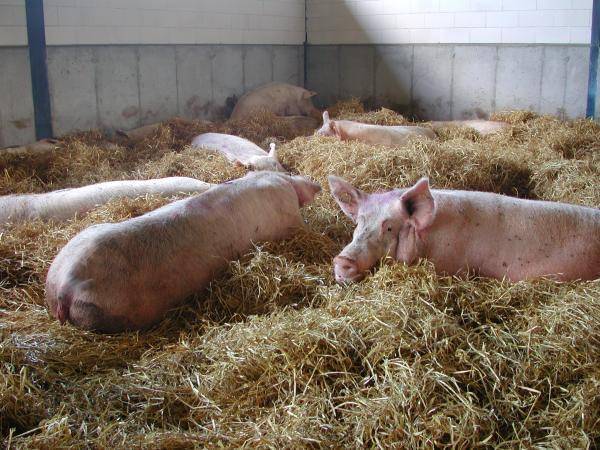Most issues with inappropriate feed composition in sows are observed around farrowing and the start of milk production. Animals that experience problems during that period are also extra sensitive to secondary problems afterwards. This specifically includes problems with the general condition and reduced oestrus symptoms. In combination with an increased culling rate, this often leads to decreased fertility results on the farm. Many feed manufacturers and sow farmers will undoubtedly recognise this problem. Because it is typically multi-factorial, the solution is anything but simple. A specific approach according to genetics or even per sow farm seems increasingly desirable. But how can we best tackle this?
Due to changes in genetic traits for energy storage and increasing conformation, it seems desirable to use modern genetics in a different way. In addition to an adapted feeding schedule, changes in the use of raw materials and adapted nutrient requirements in the sow feed should also be considered.
This specific approach should also take into account certain farm related problems such as neonatal diarrhoea, Streptococci and general intestinal health. In the year 2020, the care of sows by less experienced employers also requires feed compositions that are less likely to lead to problems in the event of (minor) errors in farm management. In many cases, the classic "standard feed" is in danger of falling short...
The nutritionist of the feed supplier is then often invited to "adjust" the feed, but usually at that stage the tools that enable making such adjustments responsibly are lacking.
Gilts rearing
Moreover, an important part of the problems outlined above has its origins in the rearing of gilts. The feeding schedule and the feed composition for rearing sows in particular usually do not take sufficient account of genetics.
As a result, the introduction of new sow lines is not always as smooth as suggested. The "manuals" of the genetics companies are also often adjusted over the years based on additional practical experience. However, the advice on feed composition remains mainly focused on nutrient levels and much less on the choice of raw materials and the use of additives...
More than enough food for thought to organise a DSM Benelux symposium on this theme in the near future. Optimal nutrition for rearing sows - based on the genetics used - will be central to this. You will be hearing more about it soon!
Meanwhile, our teams in Stroe and Deinze are always ready to answer specific questions in this area.


